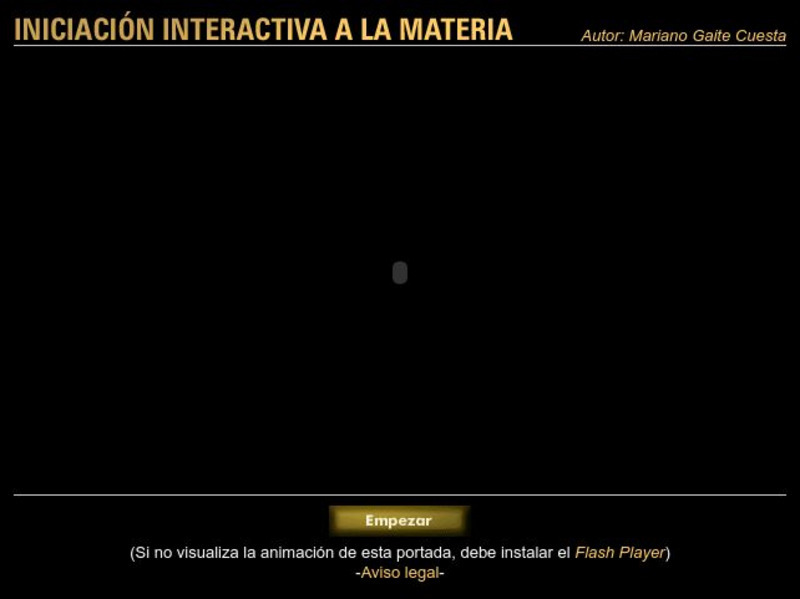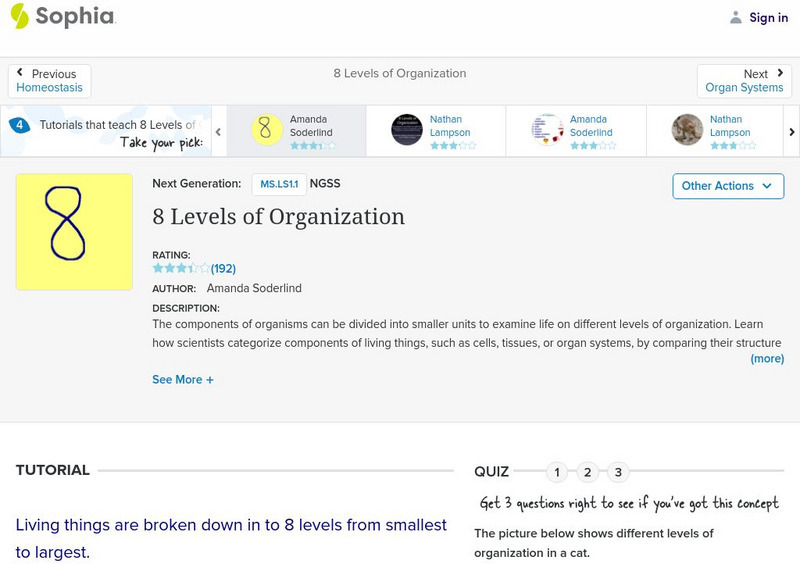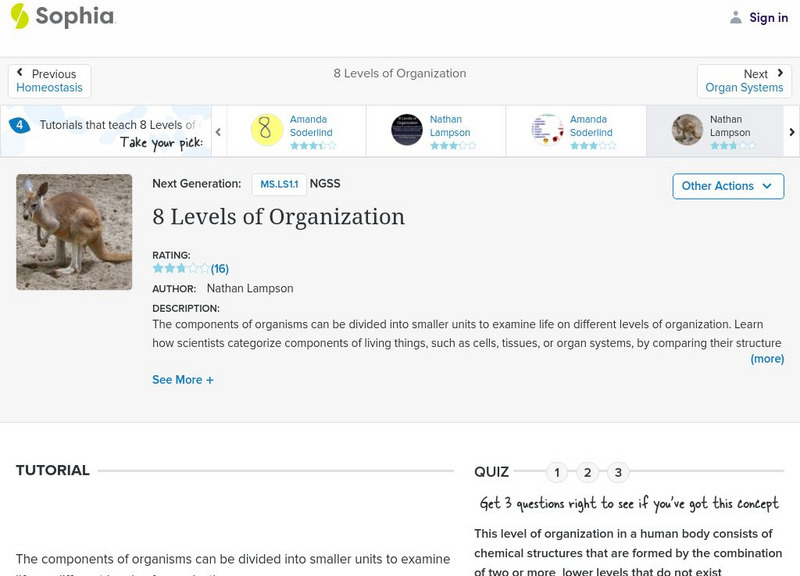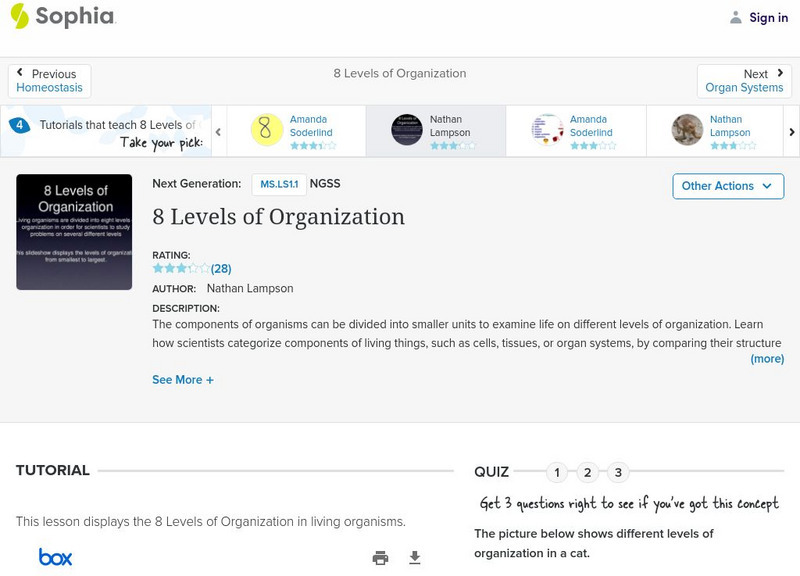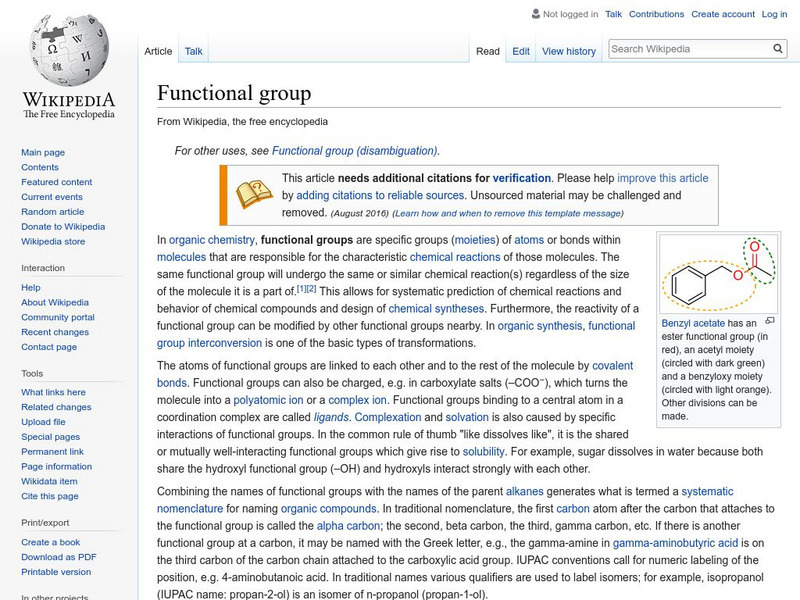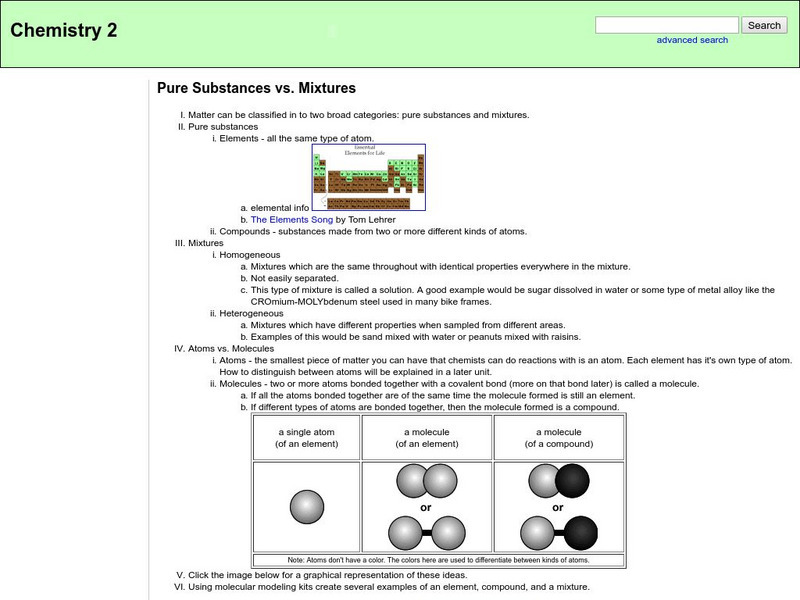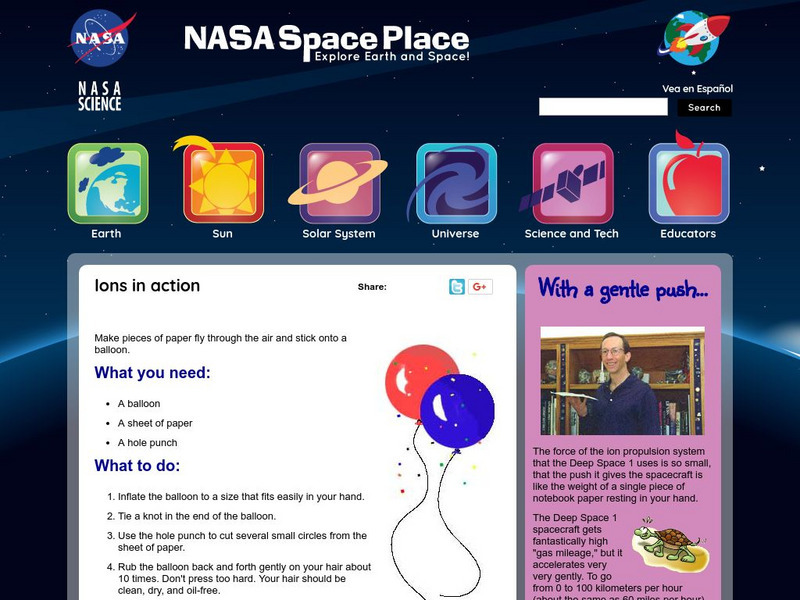Hi, what do you want to do?
Wikimedia
Wikipedia: Absolute Zero
Wikipedia offers several paragraphs of detailed information on absolute zero, the lowest temperature that can be obtained in any macroscopic system.
Other
Science Alive: What Is Organic Chemistry?
This reading/lesson plan introduces students to the concept of organic chemistry.
Other
Science Alive: The Many Faces of Steroids
This reading is an introduction to the great variety of steroids and their many different uses.
Ministerio de Educacion, Cultura y Deporte (Spain)
Cnice: Iniciacion Interactiva a La Materia
Matter is anything that has mass and occupies a space. In this site you will find a lot of illustrations and interactive activities dealing with matter.
Utah STEM Foundation
Utah Stem Action Center: Smoke in a Bottle
Middle schoolers will learn how complete and incomplete combustion is different and also how the products affect us.
Sophia Learning
Sophia: 8 Levels of Organization: Lesson 2
This lesson will show the 8 levels of organization in living organisms, ranging from smallest to largest. It is 2 of 4 in the series titled "8 Levels of Organization."
Sophia Learning
Sophia: 8 Levels of Organization: Lesson 4
This lesson will show the 8 levels of organization in living organisms, ranging from smallest to largest. It is 4 of 4 in the series titled "8 Levels of Organization."
Sophia Learning
Sophia: 8 Levels of Organization: Lesson 1
This lesson will show the 8 levels of organization in living organisms, ranging from smallest to largest. It is 1 of 4 in the series titled "8 Levels of Organization."
Wikimedia
Wikipedia: Functional Group
Encyclopedia entry for functional groups that, in in organic chemistry, are specific groups of atoms within molecules that are responsible for the characteristic chemical reactions of those molecules.
Curated OER
Science Kids: Science Images: Chemical Structure of Methane
This diagram shows the chemical structure of methane. A methane molecule contains one carbon atom and four hydrogen atoms.
School of Biological and Chemical Sciences, Queen Mary University of London
Queen Mary University: Glossary
This Queen Mary University site features a glossary of chemical terms, including London forces.
Other
Chemsite: Pure Substances vs. Mixtures
An outline on the topics of pure substances and mixtures.
NASA
Nasa: The Space Place: Ions in Action
The page from NASA's The Space Place describes a simple activity, charging a balloon and making it move small pieces of paper. It then goes on to give an excellent explanation of how the activity works, and how it involves ions. This...
Frostburg State University
Frostburg State Chemistry Online: Classifying Compounds Quiz
A short 6-question online quiz to test your knowledge of compounds. Explains the correct answers after the students answers have been submitted.
Other popular searches
- Gumdrop Atoms and Molecules
- Counting Atoms Molecules
- Making Atoms and Molecules
- Atoms & Molecules Ppt
- Matter Atoms Molecules
- Science, Atoms and Molecules
- Science Atoms and Molecules
- Atoms Molecules Elements
- Atoms & Molecules Pot
- Atoms and Molecules Lesson
- Atoms Molecules Units
- Atoms and Molecules Musical







